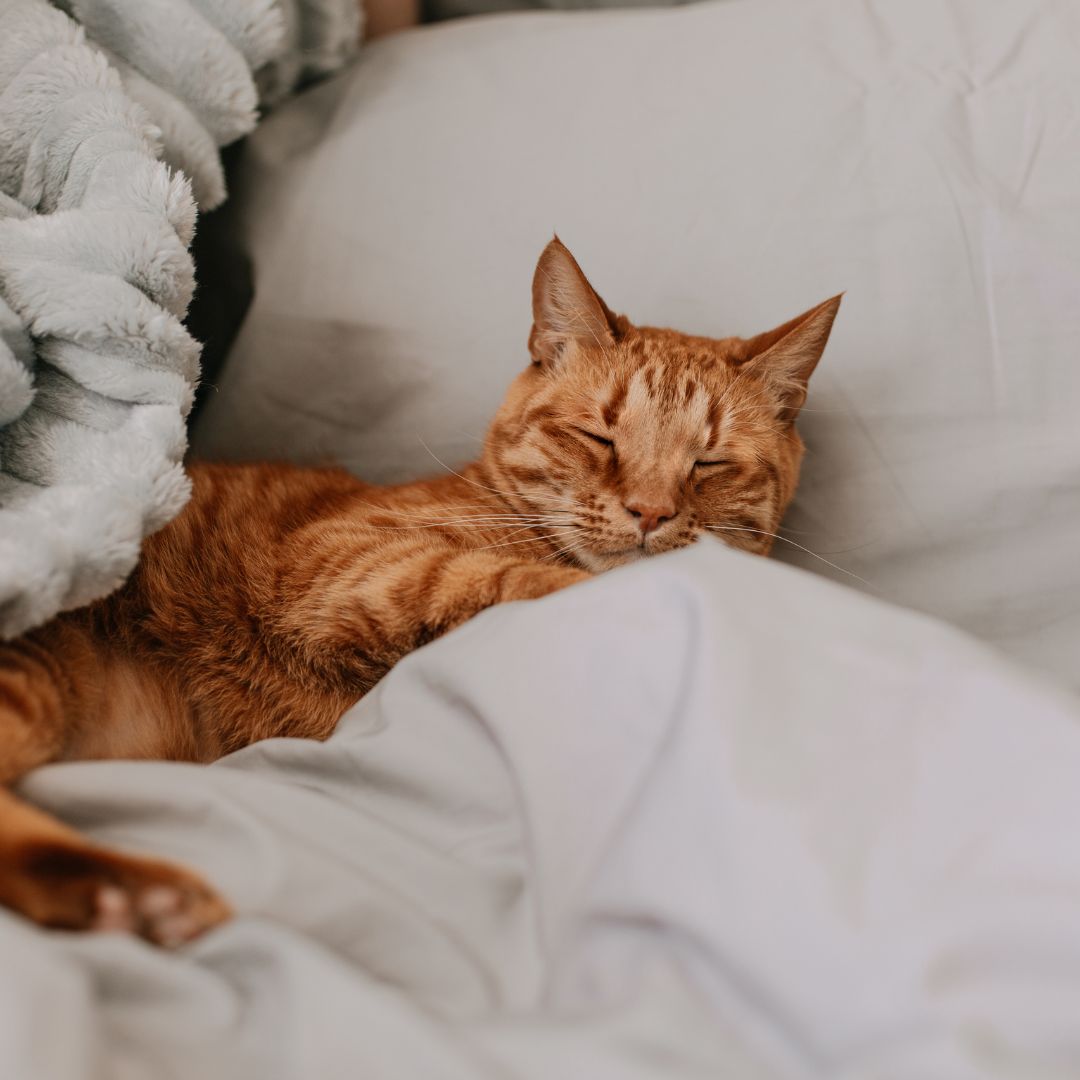
Why Do Cats Sleep So Much? - 5 Reasons You Need to Know
Share
Cats seem to spend more time sleeping than being awake, often waking up only to eat before returning to another nap. While this lifestyle might seem enviable, it prompts the question: why do they sleep so much? After delving into scientific literature and exploring the evolution and behavior of cats, we've condensed our findings into five reasons explaining their penchant for sleep.
1. Cats were hunters in the past
It may be surprising, but our beloved feline companions have a predatory past. Even though they're domesticated now, cats still carry the genetic legacy of their hunting ancestors. Thousands of years ago, these creatures weren't the adorable balls of fur we know today; they were skilled stalkers, chasing down prey for survival in the wild. Hunting was a strenuous activity, requiring immense energy. After a successful hunt, cats needed days of rest and, you guessed it, plenty of sleep to fully recuperate. Interestingly, traces of their hunting instincts persist even in domestic settings. Just observe a playful kitten, eagerly pouncing and hiding, mimicking the behavior of a hunter. These behaviors highlight the enduring influence of their hunting genes. Thus, it's no wonder that cats are accustomed to prolonged periods of sleep, a necessity ingrained in their biology from their days as formidable hunters.
2. Cats don't always sleep, they sometimes just 'chill'
Although it might seem like cats sleep a lot of the time, occasionally they are just dozing away out of pure enjoyment. Let's be honest: Wouldn't you, if you had all the time in the world? Did you ever have one of 'those' sundays? Waking up at 8 but just keep on laying in the bed, dozing away and enjoying the coziness of your bed? That's exactly what cats are doing sometimes. But apart from the enjoyment, it also has a deeper meaning for them: Instead of just enjoying their laziness, studies found that cats have the incredible ability to literally be awake and asleep at the same time (kind of)! Cats are able to regenerate energy while they are half asleep. During this time, they are awake enough to sense any kind of movement around them, while still being 'asleep enough' to regenerate fully! This goes again back to their DNA and allows them to rest while still being able to react to their environment! How cool is that? So next time when you are talking behind your cat's back because you think it's asleep, think again!
3. Weather makes cats awake - or sleepy
Just like humans, cats are also influenced by the weather. When the sun is shining, we often feel more energetic, while grey and rainy days can leave us feeling a bit drained, seeking the comfort of our couch or bed. Interestingly, research indicates that cats experience similar effects from weather changes, regardless of their age, breed, or usual demeanor. On rainy days, your feline companion may exhibit a lack of interest in activities, opting instead to lounge around, eyes closed, and settle in for a prolonged nap. It's reminiscent of that Bruno Mars song - when it's gloomy outside, your cat might just want to "lay in bed" like the rest of us. So, next time the weather is inclement, take a cue from your cat and indulge in a cozy nap. After all, it's our biology nudging us in that direction, and our feline friends agree.
4. Cats need more sleep as the grow older
Do you have the privilege of sharing your life with a cat who's been your faithful companion for over a decade? If so, congratulations! The bond between a human and their long-time feline friend is truly special, and we hope every cat owner gets to experience it. As both you and your cat age gracefully together, there's one activity you'll both find increasingly appealing: sleep. While younger cats typically clock in around 12-14 hours of sleep per day, researchers have discovered that older cats can snooze for up to 20 hours daily. This increased need for rest is a result of their energy expenditure and slower recovery abilities as they age. So, don't be surprised if you notice your older cat opting for more downtime and fewer sprinting sessions. It's not that they can't keep up; they simply understand that their bodies require longer periods of rest to recharge. Embrace the cozy moments of aging gracefully with your furry friend! "Want to hit the town with us on Friday night?" "Sorry, I can't. I've got a date with my cat...for a nap!"
5. Cats get bored
Just like humans, cats can also experience boredom, especially when left alone. Despite their freedom to roam, many cats find themselves at a loss for how to occupy their time when their humans are away. The absence of toys, companions, or other sources of entertainment often leads them to opt for a nap instead of venturing outside for a stroll around the neighborhood. This behavior mirrors our own tendencies: when faced with a lack of stimulation, we're inclined to remain in a low-energy state, preferring to indulge in additional naps or binge-watch another episode of our favorite show rather than muster the energy to go out for a walk. Comfort is, after all, quite comfortable. Cats, too, are creatures of comfort, which explains their inclination towards laziness and propensity for taking multiple naps throughout the day.
